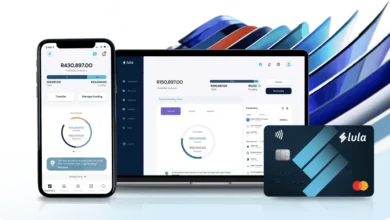How the Mercedes-Benz V-Class Became South Africa’s Ultimate Luxury People-Mover: A Masterclass in Brand Strategy
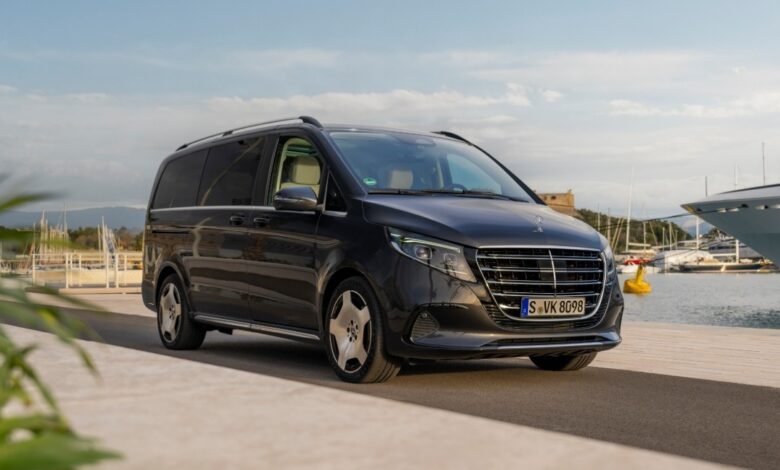
How the Mercedes-Benz V-Class Became South Africa’s Ultimate Luxury People-Mover: A Masterclass in Brand Strategy. In South Africa’s competitive automotive market, one vehicle has managed to carve out an undeniable niche at the intersection of luxury, utility, and status: the Mercedes-Benz V-Class. Once seen primarily as a practical choice for corporate and shuttle services, the V-Class has evolved into a symbol of premium comfort and elite mobility. This transformation did not happen by chance—it was the result of deliberate strategy, market adaptation, and a deep understanding of consumer aspirations.
Laying the Foundation: A Unique Value Proposition
When Mercedes-Benz introduced the V-Class, the goal was clear: to create a multi-purpose vehicle (MPV) that didn’t compromise on luxury. Unlike traditional minivans, which were often viewed as utilitarian, the V-Class exuded elegance, offering high-end materials, advanced technology, and superior comfort.
In South Africa, a country where luxury vehicles serve as both status symbols and functional investments, the V-Class fit perfectly. It appealed to executives, affluent families, and high-end shuttle services catering to business travelers and tourists. By identifying this niche early, Mercedes-Benz positioned the V-Class as the premier choice for those seeking both space and sophistication.
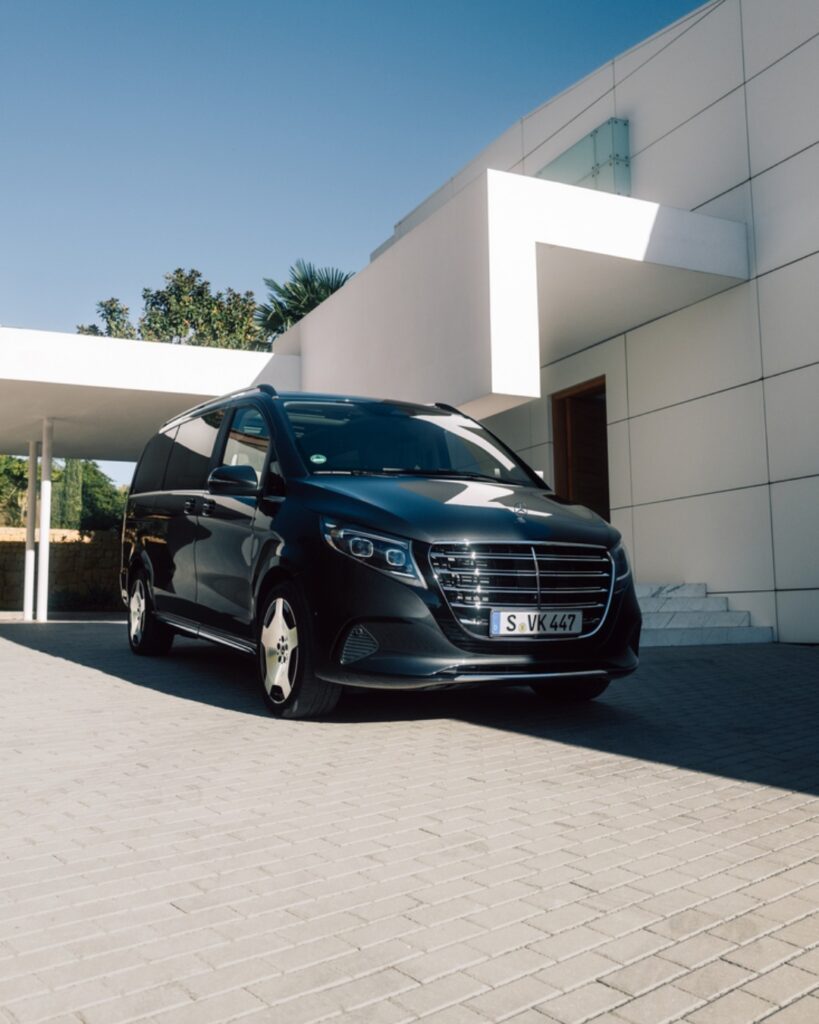
Strategic Marketing: Selling a Lifestyle, Not Just a Vehicle
Mercedes-Benz didn’t just market the V-Class as a car—it marketed an experience. The brand focused on aspirational storytelling, leveraging key pillars of luxury, exclusivity, and lifestyle to make the vehicle desirable beyond its core functionalities.
Key strategies that fueled its rise include:
- Targeting High-Value Customer Segments: Mercedes-Benz concentrated on high-net-worth individuals, premium transport operators, and corporate fleets, ensuring that the V-Class was seen in elite settings, from business-class airport shuttles to high-profile events.
- Influence of High-Profile Users: The V-Class has gained prominence through its use by executives, business leaders, and premium chauffeur services, reinforcing its elite status.
- Tailored Financing Solutions: Understanding that even affluent customers appreciate flexibility, Mercedes-Benz offered competitive financing and leasing options, making the V-Class accessible to its desired market without diluting its premium appeal.
Overcoming Challenges: Reinventing the Perception of an MPV
Despite its premium branding, the V-Class initially faced an uphill battle. Traditional MPVs were often associated with practicality rather than luxury, making it crucial to distinguish itself from lower-end people carriers.
Mercedes-Benz tackled this challenge through:
- Luxury-Focused Interior Design: By incorporating elements from the S-Class sedan—such as Nappa leather seats, ambient lighting, and advanced infotainment—the brand ensured that stepping into a V-Class felt like entering a private jet on wheels.
- Performance Enhancements: Unlike typical people carriers, the V-Class boasted impressive driving dynamics, a powerful diesel engine, and smooth handling, making it feel as refined as any other Mercedes-Benz model.
- Premium Trims and Customization: Instead of widely publicized “limited editions,” Mercedes-Benz offers high-end trims like the V300d Avantgarde and allows customization through specialized third-party luxury vehicle modifiers, ensuring exclusivity.
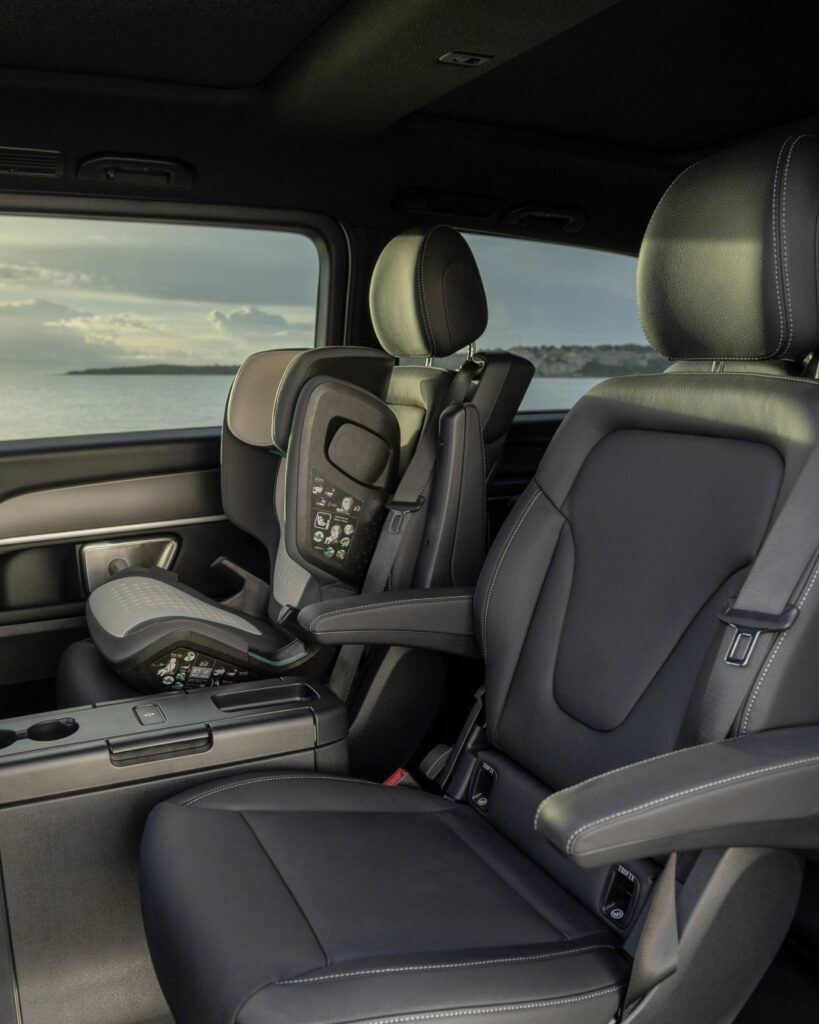
Expansion and Growth: Owning the Market
With its premium positioning secured, Mercedes-Benz expanded its reach, ensuring that the V-Class became a mainstay in high-end transport solutions. The brand established strategic partnerships with luxury hotels, chauffeur services, and corporate travel firms, embedding the V-Class into the country’s business and tourism ecosystem.
Additionally, the introduction of customization options—such as VIP configurations with reclining seats, advanced entertainment systems, and executive workstations—solidified its place as the ultimate business and leisure travel companion.
Lessons for Entrepreneurs: Building a Brand with Staying Power
The success of the V-Class in South Africa offers key insights for entrepreneurs and business owners:
- Identify and Own a Niche: Mercedes-Benz saw an opportunity to redefine the MPV category and went all in. Entrepreneurs should look for gaps in their industry where they can provide a premium, differentiated experience.
- Sell an Experience, Not Just a Product: The V-Class isn’t just a vehicle—it’s a status symbol and a lifestyle. Businesses should focus on the emotional appeal of their offerings, making them aspirational and not just functional.
- Overcome Perception Barriers with Innovation: If your product faces a stigma or outdated perception, reinvent it with superior quality, marketing, and storytelling.
- Leverage Strategic Partnerships: By aligning with the right businesses and influencers, you can elevate your brand’s credibility and visibility in the market.
- Continuously Evolve: The V-Class has remained relevant through innovation, premium trims, and strategic positioning. Long-term success requires adapting to changing customer needs while staying true to your brand’s essence.
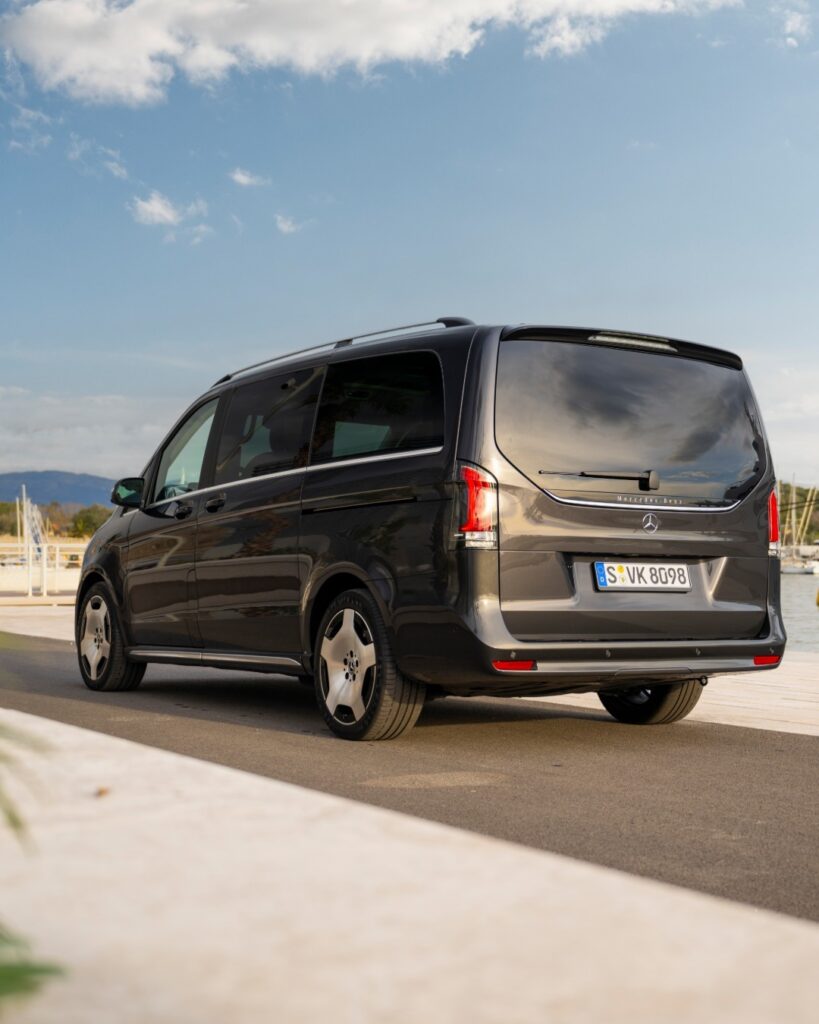
Final Thoughts: A Blueprint for Lasting Success
The Mercedes-Benz V-Class has gone from being an overlooked MPV to South Africa’s ultimate luxury people-mover. Through strategic branding, market adaptation, and an unwavering commitment to excellence, it has become an aspirational vehicle that commands respect on the road. Entrepreneurs can take a page from this playbook—by identifying opportunities, crafting compelling narratives, and continuously innovating, any brand can achieve long-term success in its industry.



